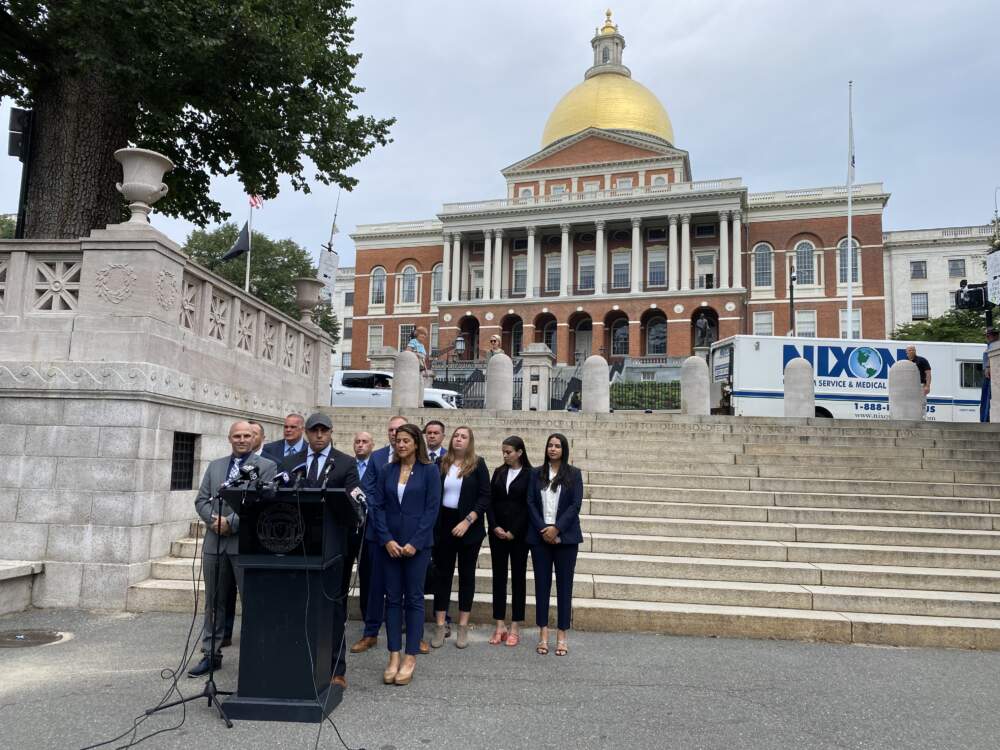Advertisement
State troopers suspended for refusing COVID vaccines can return to work in the coming weeks

Seven state police troopers are deciding whether to go back to work after being suspended the past two years for refusing to get vaccinated against COVID.
The troopers had sought a religious exemption from former Gov. Charlie Baker's vaccine mandate for executive office employees.
Last week, an independent arbitrator ruled in the troopers' favor, writing that their union contract should have afforded them "reasonable accommodations," such as submitting to testing in lieu of vaccinations.
A spokesperson for Gov. Maura Healey said her administration is "reviewing this decision."
The ruling clears the way for the troopers to return to their jobs with back pay and restored seniority.
"Hopefully they all return," State Police Association President Patrick McNamara said Monday. "They're all great, honorable troopers, all [of] which have sincerely held religious beliefs that were not afforded the right to have an accommodation."
McNamara said the troopers could return in the next few weeks. An eighth trooper named in the case, State Police Association Vice President Luke Bonin, is already back at work, having received the vaccine after initially refusing.
The arbitrator's decision is narrow and applies to only these seven troopers who were deemed eligible for religious exemptions by their union contract.
The State Police Association is also fighting to reinstate 13 troopers who weren't granted medical or religious exemptions and were fired after refusing the COVID vaccine. That case is ongoing.
The ruling follows several high-profile cases involving pandemic emergency-era vaccine mandates. The Supreme Judicial Court ruled in March that Boston Mayor Michelle Wu had proper authority to require municipal workers be vaccinated against COVID. In California, the city of San Diego recently paid out $110,000 to settle lawsuits challenging its former vaccine mandate for city workers.
